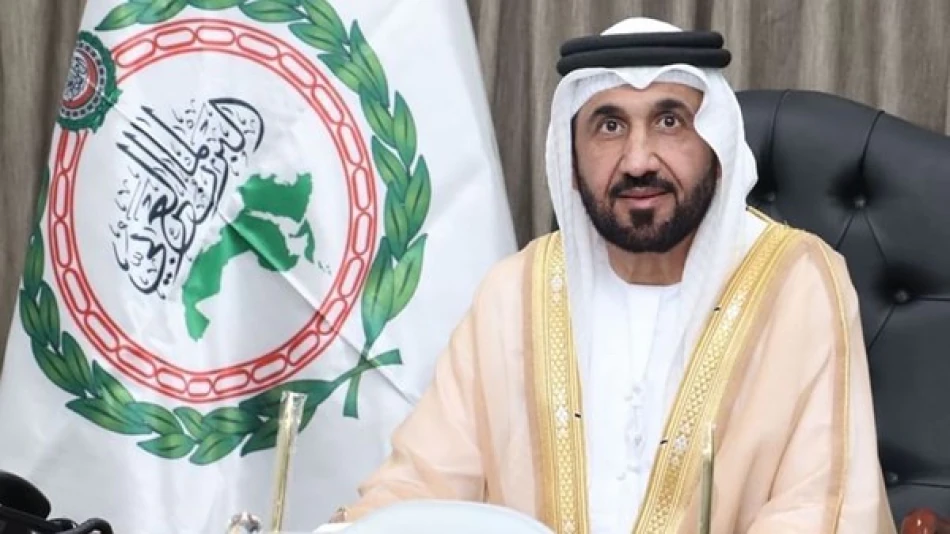
Arab Parliament Welcomes France's Declaration to Recognize the State of Palestine
Arab Parliament Hails French Recognition Move as Diplomatic Momentum Builds for Palestinian Statehood
The Arab Parliament has welcomed French President Emmanuel Macron's announcement of France's intention to recognize Palestinian statehood, calling it a "courageous and historic step" that could accelerate international diplomatic efforts toward a two-state solution. The endorsement signals growing regional optimism that European powers may be shifting their approach to Middle East diplomacy following months of escalated tensions.
Strategic Timing Reflects Broader European Recalibration
Arab Parliament President Mohammed bin Ahmed Al-Yamahi described France's position as embodying "values of justice, freedom, and human dignity" while supporting Palestinian rights to establish an independent, sovereign state. This endorsement comes at a critical juncture when European Union members are reassessing their Middle East policies amid ongoing regional instability.
France's move represents more than symbolic gesture—it reflects a calculated diplomatic recalibration that could influence other European nations still weighing recognition decisions. Unlike previous decades when such announcements carried limited practical impact, today's geopolitical landscape suggests greater potential for meaningful policy shifts.
Regional Diplomatic Strategy Takes Shape
Building International Consensus
Al-Yamahi characterized the French position as reflecting "positive transformation in international positions" that strengthens diplomatic and parliamentary efforts toward comprehensive Middle East peace. The Arab Parliament's response indicates coordinated regional strategy to leverage European recognition as momentum for broader international acceptance.
The timing coincides with renewed focus on two-state solutions across multiple diplomatic channels, suggesting Arab leadership views current conditions as potentially favorable for advancing Palestinian statehood recognition among hesitant nations.
Pressure Campaign for Broader Recognition
The Arab Parliament president specifically called on nations that haven't yet recognized Palestinian statehood—particularly "peace-loving countries"—to follow France's example and fulfill their "moral, legal, and humanitarian responsibilities." This language suggests coordinated diplomatic pressure targeting specific countries whose recognition could create cascading effects.
Such appeals typically focus on European Union members, Latin American nations, and Asian countries where domestic political conditions might support recognition decisions. The emphasis on "peace-loving" nations appears designed to frame recognition as moral imperative rather than partisan political choice.
Parliamentary Diplomacy as Policy Tool
Al-Yamahi reaffirmed the Arab Parliament's commitment to mobilizing support through regional and international parliamentary networks—a strategy that operates parallel to traditional state-to-state diplomacy. Parliamentary diplomacy often proves effective in building grassroots political support that can influence government positions over time.
The Arab Parliament's approach reflects understanding that sustainable diplomatic progress requires multi-layered engagement combining official government channels with legislative and civil society networks. This methodology has proven successful in previous international recognition campaigns across various global conflicts.
Implications for Regional Stability
France's recognition intention, endorsed enthusiastically by Arab parliamentary leadership, suggests potential evolution in European-Middle Eastern diplomatic relationships. Whether this translates into concrete policy changes depends largely on broader geopolitical developments and domestic political calculations within European capitals.
The Arab Parliament's response indicates regional leadership views current international conditions as potentially favorable for advancing Palestinian statehood recognition, though practical implementation timelines remain uncertain given complex regional dynamics and competing international priorities.
Most Viewed News

 Layla Al Mansoori
Layla Al Mansoori






